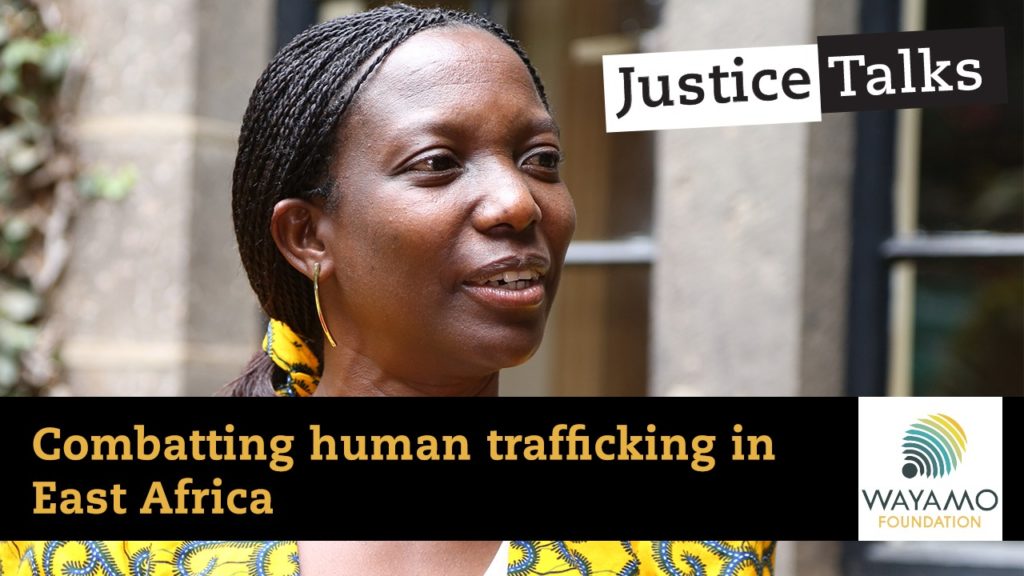
Justice Talks: Commandant Agnes Igoye
Commandant of the Ugandan Immigration Training Academy talks to Wayamo’s Senior International Criminal Justice Lawyer, Angela Mudukuti about the challenges of combatting human trafficking and the importance of meaningfully engaging with the victims in the struggle against human trafficking. On 29 July 2019, the Wayamo Foundation hosted a high-level retreat bringing the other experts and the Heads of the Anti-trafficking Units from Kenya, Uganda, Rwanda, Tanzania, Djibouti, Ethiopia and Somalia together to analyse the issue of trafficking from a regional perspective, propose improvements for judicial cooperation, and reflect on strategies to better address human trafficking and migrant smuggling cases. The event was funded through the Better Migration Management (BMM) programme. BMM is a regional, multi-year, multi-partner programme funded by the EU Emergency Trust Fund for Africa (EUTF) and the German Federal Ministry for Economic Co-operation and Development (BMZ). The overall objective is to improve migration management in the Horn of Africa, and in particular to address the trafficking and smuggling of migrants within and from the region. — Justice Talks are a series of interviews about justice and accountability in Africa and beyond, featuring experts and leaders from the fields of human rights, international criminal law, politics and civil society.
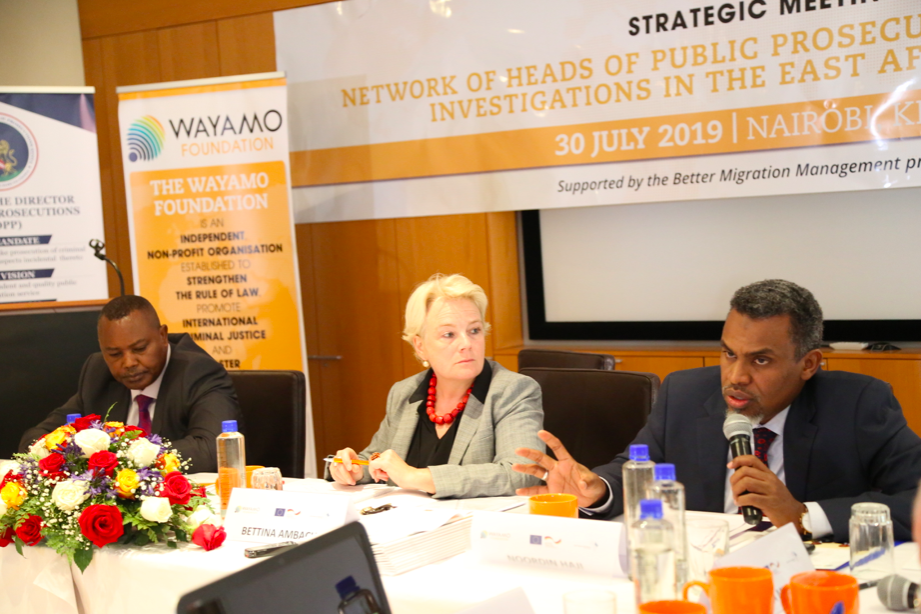
High-level retreat and strategic Network meeting in Nairobi
Wayamo resumes its work in East Africa with a high-level retreat on “Combating human trafficking” and a strategic meeting of the network of Heads of Public Prosecutions and Criminal Investigations in the East African region. In continuation of its ongoing efforts to enhance the capacity of East African states to investigate and prosecute transnational human trafficking cases, as well as to strengthen regional cooperation amongst the region’s Investigation and Prosecution authorities, the Wayamo Foundation recently held back-to-back events in the Kenyan capital, Nairobi. 29 July 2019 High-level Retreat –Combating transnational trafficking and migrant smuggling in East Africa Click here for all pictures. The first of event was a high-level retreat bringing together the Heads of the Anti-trafficking Units from Kenya, Uganda, Rwanda, Tanzania, Djibouti, Ethiopia, South Sudan and Somalia to analyse the issue of trafficking from a regional perspective, propose improvements for judicial cooperation, and reflect on strategies to better address human trafficking and migrant smuggling cases. The retreat’s stated aim was to enhance the capacity of East African states to investigate and prosecute transnational trafficking and migrant smuggling cases, strengthen inter-agency and cross-border collaboration in the region, as well as promote a regionally coherent approach to the fight against trafficking crimes. After the formal opening of
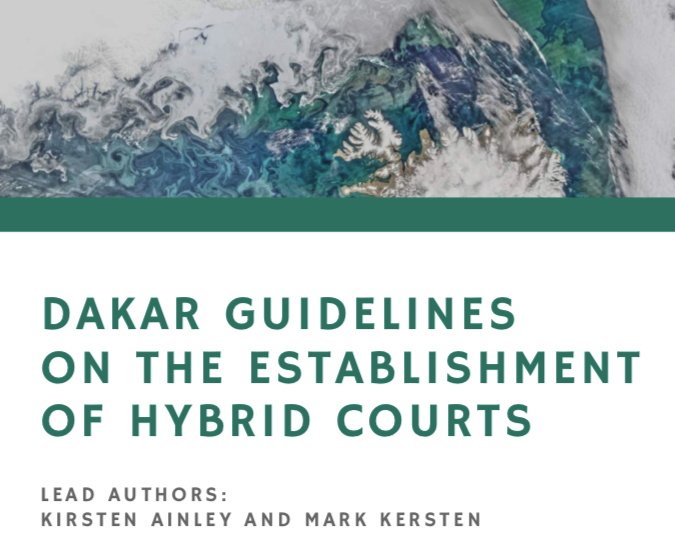
Launch of the Dakar Guidelines
After two years of work and research, the lead authors and drafting team launched the Dakar Guidelines on 23 July 2019. The goal of the Guidelines is to provide a reference guide on the establishment of hybrid courts. As such, the Dakar Guidelines do not represent a roadmap, nor are they a best practices manual. Rather, the Guidelines offer national, regional, and international actors involved in the establishment of hybrid tribunals a set of key decision points and design options that should be considered when establishing and running a hybrid court. The Guidelines are particularly tailored to two purposes: (1) to highlight issues that have proven complicated or had long-term implications for past hybrid courts and so should be given special consideration in the design phase, and (2) to suggest design components that may increase the resilience of the court (i.e., the court’s own capacity to act independently and to resist political, financial, and other pressures), and the resilience of affected communities through engagement with the court. They further offer interested observers, academics, researchers, and students a comprehensive and coherent study of the hybrid court model. They are, in short, a practical set of guidelines on the establishment of hybrid tribunals
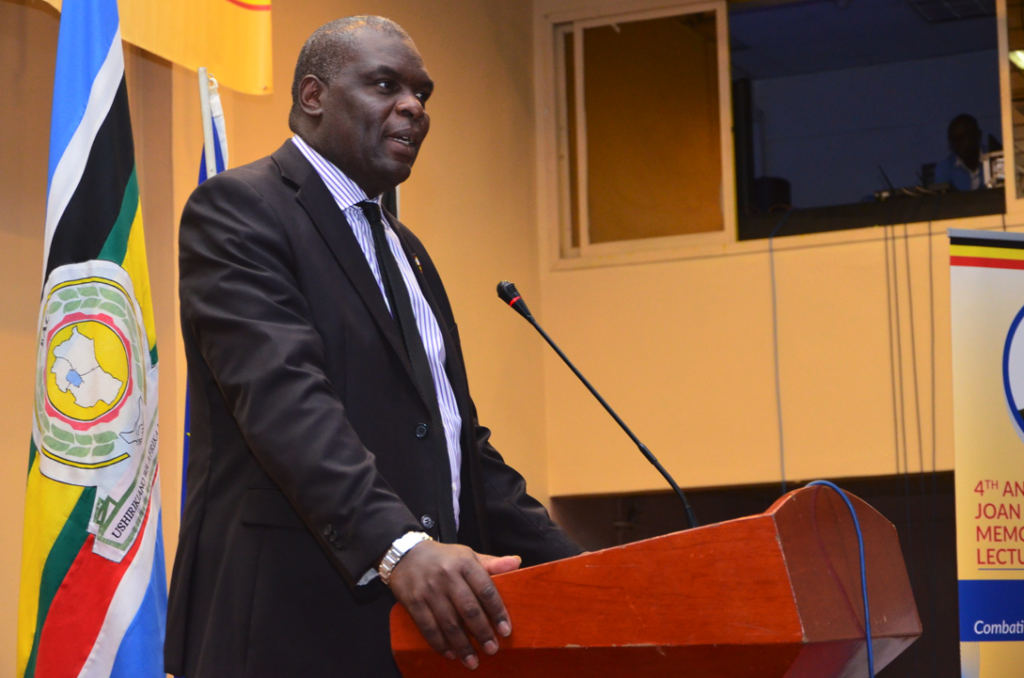
Joan Kagezi Memorial Lecture Report
On 17 April 2019, the Wayamo Foundation, in partnership with the Ugandan Office of the Director of Public Prosecutions (DPP), held the 4thAnnual Joan Kagezi Memorial Lecture in Kampala. The event was organised with the financial support of the European Union. The 4thAnnual Joan Kagezi Memorial Lecture focused on how national, regional and international actors can harness domestic and international law to better confront and combat impunity for terrorism. Joan Kagezi worked tirelessly to prosecute terrorist crimes but was killed in an act of terror. This made this year’s Annual Memorial Lecture especially timely, since states owe it to champions of justice like Kagezi, not only to bring terrorists to account, but also to develop the tools and effective capacity to investigate and prosecute terrorism. Click here for the full Memorial lecture report: Click here for all pictures Click here for the programme Disclaimer: This publication was produced with the financial support of the European Union. Its contents do not necessarily reflect the views of the European Union. European Union
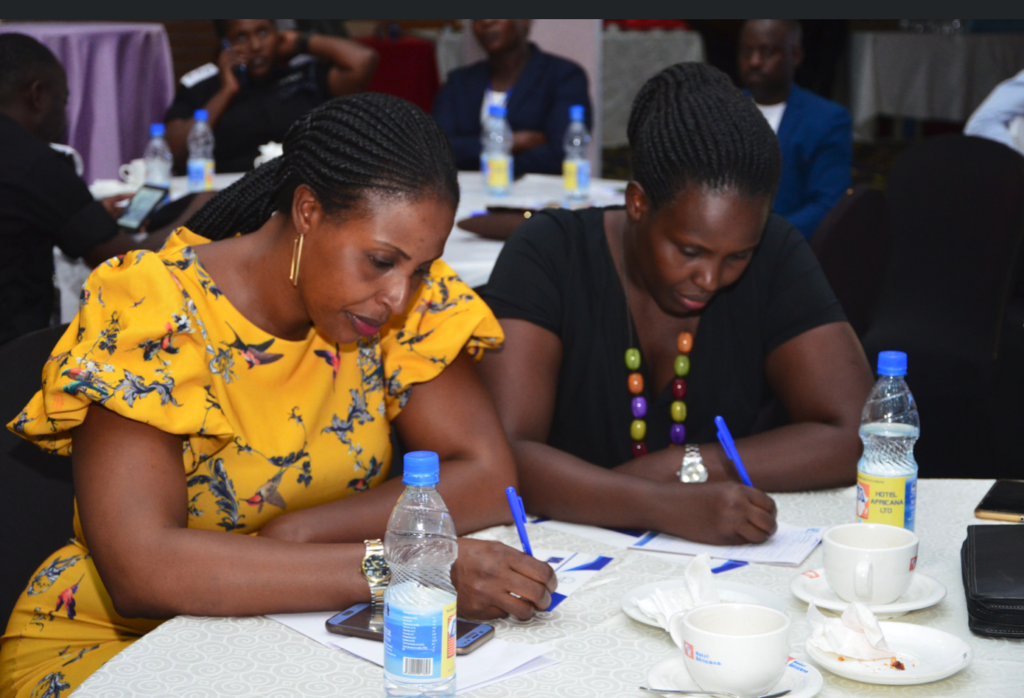
July 2019 Newsletter
Here are the latest updates about some of the leading projects and activities of the Wayamo Foundation and the Africa Group for Justice and Accountability. Since January 2019, the Wayamo Foundation and the Africa Group for Justice and Accountability have held two capacity building workshops for investigators and prosecutors, and two symposia on international justice at venues in Uganda and Ghana. Click here for the July 2019 Newsletter.
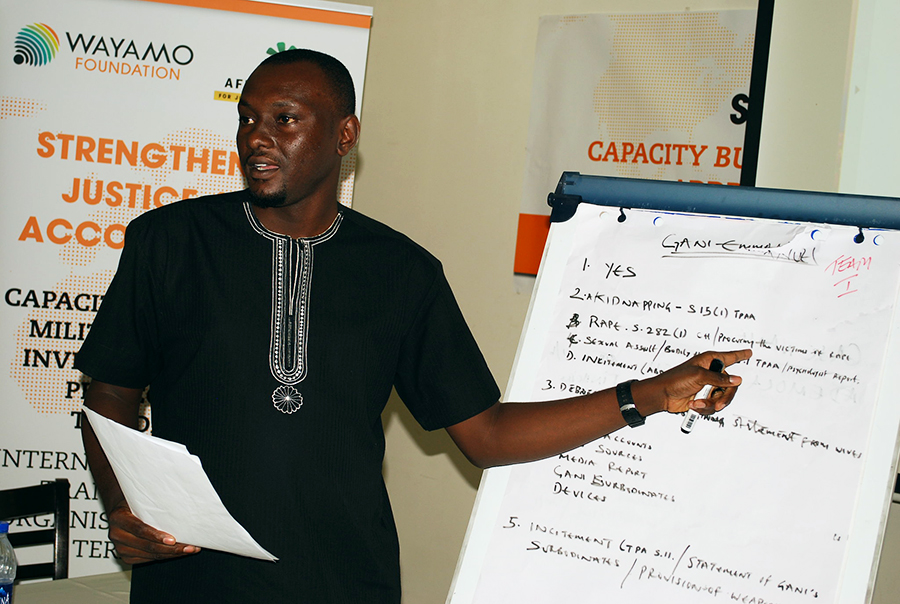
Summary report: “Strengthening justice and accountability in Nigeria”
Following on from five previous workshops on “Strengthening Justice and Accountability in Nigeria” held over the course of 2017 and 2018, the conclusion of the latest three-day session in Lagos, from November 1 to 3, marks the sixth in the series organised, promoted, designed and conducted by the Wayamo Foundation, the Africa Group for Justice and Accountability (AGJA) and the International Nuremberg Principles Academy.

